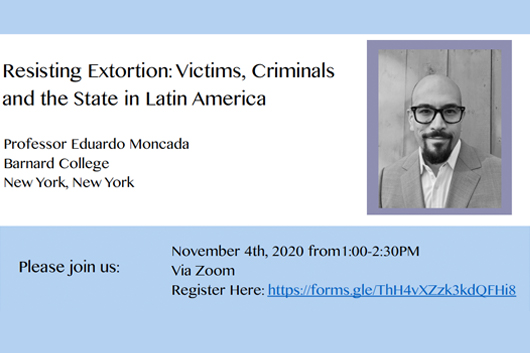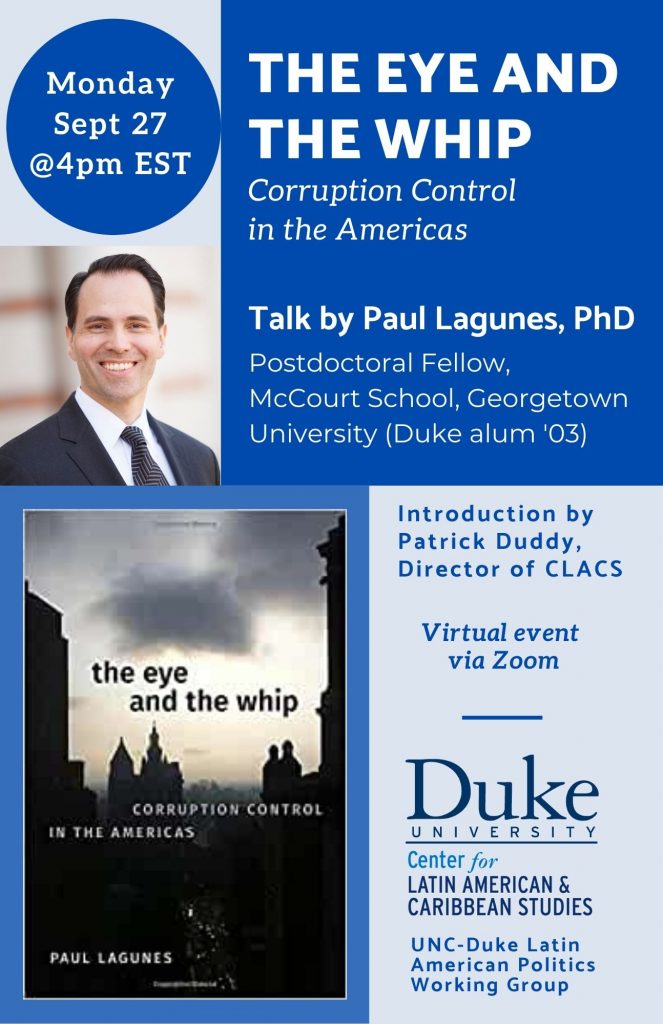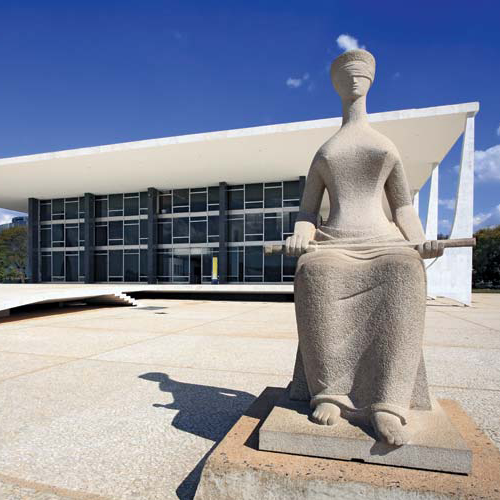
The theme for this year’s Latin American Politics working group is “Polarization and Misinformation in Latin American Democracies.” This working group aims to unite graduate students interested in Latin American politics from both Duke and UNC in order to expose them to current advancements in Latin American Politics, new scholarship in the field, and state of the art methods used by Latin American scholars in Political Science. Working group activities will allow graduate students and faculty the opportunity to meet with scholars in the field and learn about their ongoing research projects, and will offer graduate students a forum to present their own research and receive feedback from fellow students and faculty. Specifically the working group will organize seminars with guest speakers, meetings in which graduate students present their work, a mini-conference, and a book club.
Coordinators:
Prof. Pablo Beramendi (Political Science, Duke, pablo.beramendi@duke.edu)
Prof. Jonathan Hartlyn (Political Science, UNC, hartlyn@unc.edu)
Prof. Evelyne Huber (Political Science, UNC, ehuber@unc.edu)
Prof. Cecilia Martínez Gallardo (Political Science, UNC, cmg@email.unc.edu)
Prof. Santiago Olivella (Political Science, UNC-Chapel Hill, olivella@unc.edu)
Martín Opertti (Political Science, Duke, martin.opertti@duke.edu)
Matias Tarillo (Political Science, UNC), mtarillo@unc.edu
Ayélen Vanegas (Political Science, UNC), avanegas@unc.edu
Friday, May 2 @ 9:00 a.m.-12:00 p.m. | Fedex Global Educ Center, Rm 3009
Annual Mini Conference
Join the UNC-Duke Latin American Politics Working Group for their annual mini-conference. This year, we invited Prof. Rodrigo Castro Cornejo (University of Massachusetts Lowell) and Candelaria Garay (Cornell University, who will join us on Zoom). Ayelén Vanegas (UNC) and Matías Tarillo (UNC) will be our graduate student presenters.

Presentations:
Matías Tarillo – You Sound Angry: Candidates’ Voice Tone as a Heuristic
Wednesday, March 26 @ 5 p.m.
LAPWG Book Club
Dr. Bogliaccini will be joining us virtually to discuss his work and answer questions!

Friday, May 3, 2024 @ 9:00 a.m.
Annual Mini-conference
The UNC-Duke Consortium Working Group in Latin American Politics presents a mini-conference. Invited speakers are Prof. María Victoria Murillo (Columbia University) and Prof. Jenny Guardado (Georgetown University). Mateo Villamizar Chaparro (Duke) and Matías Tarillo (UNC) will be our graduate student presenters.

Professors Murillo and Guardado will be available for meetings with graduate students and faculty on Thursday May 2nd during the afternoon. (To schedule a meeting or join the speakers for lunch:
https://unc.az1.qualtrics.com/jfe/form/SV_brodEjRsKA7oOc6)
Wednesday, Feb 7, 2024 @ 5:30 p.m.
Book Club with Rachel A. Schwartz
We will be reading and discussing Rachel Schwartz‘s book Undermining the State from Within: The Institutional Legacies of Civil War in Central America. Dr. Schwartz has agreed to join us virtually to discuss her work with us! If you are interested in corruption, counterinsurgency, and the relationship between the state and war this is a great book to read. The Duke/UNC Latin American Working Group will be giving copies of the book to the first people who register to the event. Contact Mateo Villamizar Chaparro for location.

Thursday, Nov. 9, 2023 @ 11 a.m. | Virtual via Zoom
Book Club with Prof. Luis Schiumerini
Prof. Luis Schiumerini (University of Notre Dame) will present his manuscript “Incumbency Bias: Bounded Accountability and Democratic Representation in Latin America.”
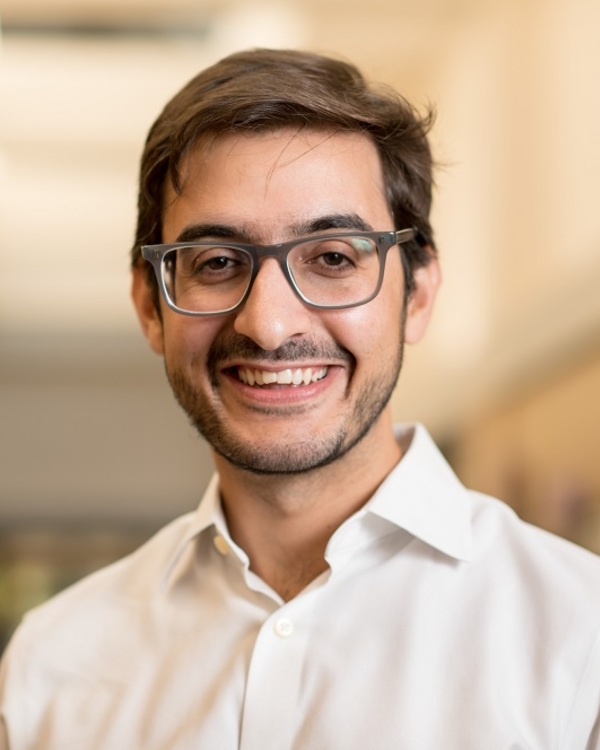
Friday, May 5, 2023 @ 9 a.m.-12 p.m. | FedEx Global Education Center, Room 3024, UNC-Chapel Hill
Mini-Conference
With Prof. Noam Lupu (Vanderbilt University) and Prof. Abby Córdova (Notre Dame). Gabriella Levy and Ayelén Vanegas will be our graduate student presenters.
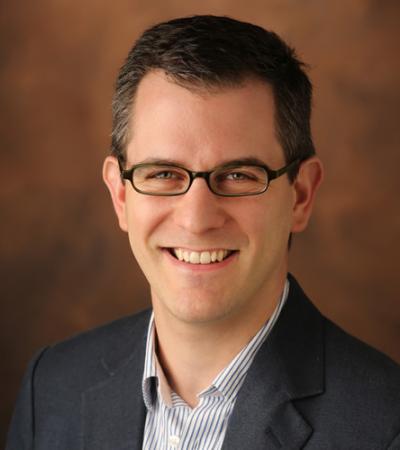
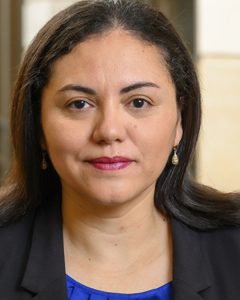
Wed, March 8, 2023 | Hamilton Hall, UNC-CH
Wed, March 29, 2023 | Virtual
“Why the apparent reversal? Explaining why Chilean voters rejected a new progressive constitution”
Prof. Emily Sellars’ book manuscript on Emigration, Collective Action, and Reform. She uses a historical political lense to analyze twentieth century Mexico.
Friday, Nov 4, 2022 @ 3 p.m. | Hamilton Hall 271, UNC-Chapel Hill
Partisan Dehumanisation in Brazil
With Prof. David Samuels, Distinguished McKnight Professor, University of Minnesota
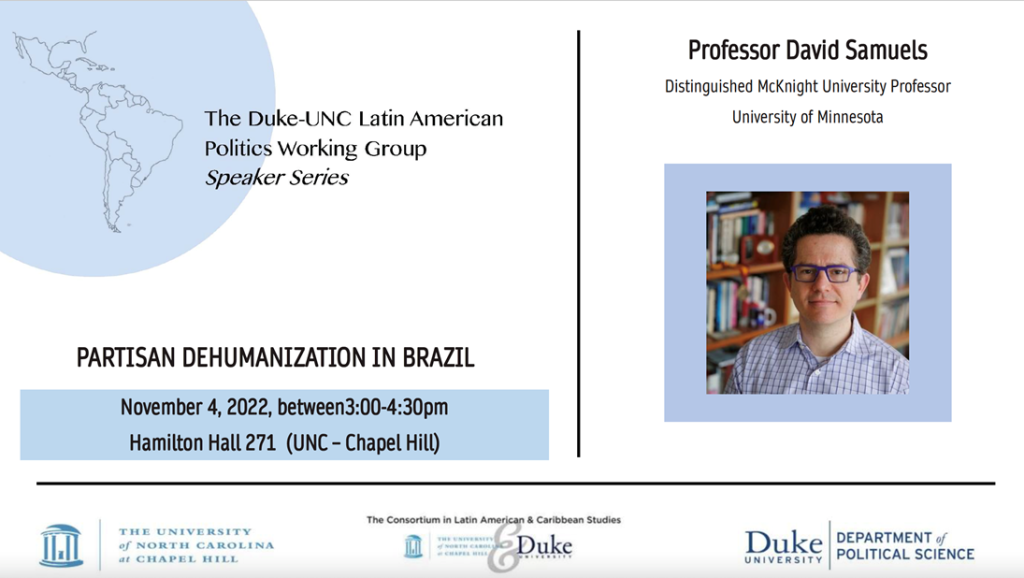
Wednesday, April 6, 2022 @ 6 p.m.
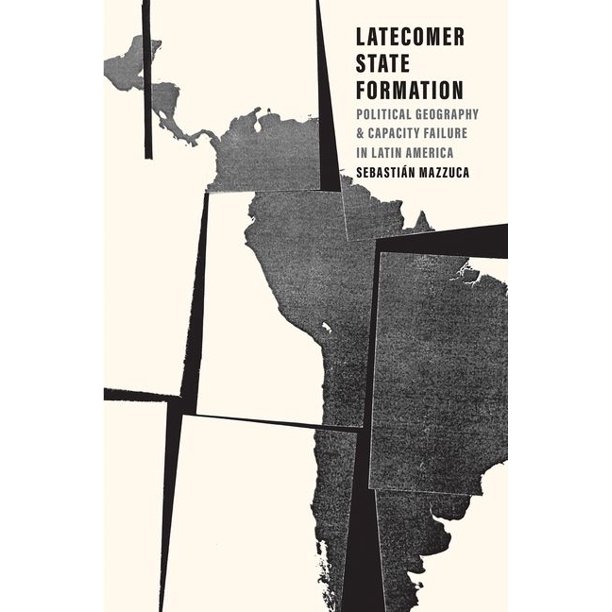
Latin American Politics Book Club
We discussed Prof. Mazzuca’s book, Latecomer State Formation, on April 6th at 6 pm via zoom. We expect participants to have read the book beforehand. Prof. Mazzuca made some remarks about his book, and then held a Q&A session for participants to ask questions about the book. Email lapwg@duke.edu for more info.
Friday, Jan 28, 2022 @ 10 a.m.

Doubt the Messenger: The reputation cost of fact-checking.
Ernesto Calvo is the director of the Interdisciplinary Lab for Computational Social Science (iLCSS) and a Professor of Government and Politics at the University of Maryland. He researches comparative political institutions, social media, political representation, and social networks. His work lies at the intersection of big data, survey experiments, and institutions.
Monday, Sept 27, 2021 @ 4 p.m.
Dr. Lagunes’ new book The Eye & the Whip: Corruption Control in the Americas (Oxford University Press) argues that corruption vulnerabilities exist where government officials have power over the provision of goods and the imposition of costs. Corruption vulnerabilities turn to actual threats when officials calculate that the benefits of abusing their power are greater than the penalties associated with getting caught. By a similar logic, the formula for corruption control requires increasing the probability of detecting deviations from officially sanctioned roles through enhanced monitoring (what he refers to as the eye), and then applying the appropriate penalty in response to wrongdoing (the whip). However, across Latin America, the common policy response to corruption often emphasizes only the first of the two mechanisms. In the book he analyzes the results of three field experiments on corruption control conducted in the City of Queretaro in Central Mexico, urban and peri-urban districts in Peru, and New York City.
Wednesday, Feb 24, 2021 @ 12pm

Monday, October 26, 2020 @ 12pm
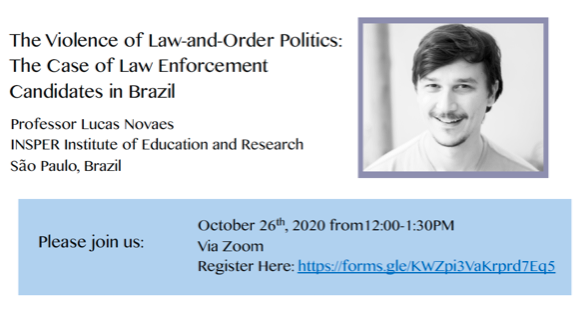
Wednesday, November 4, 2020 @ 1pm
